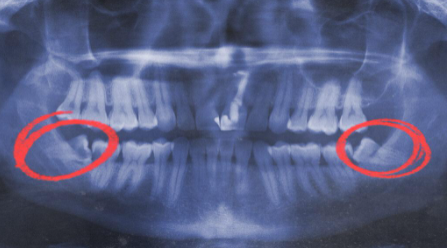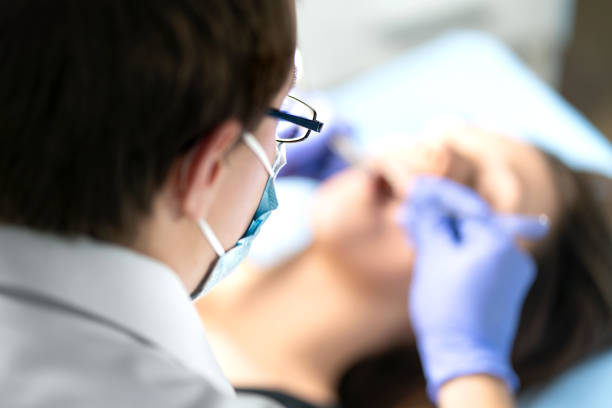Blog
Don’t Worry: You Won’t Be Losing Any Wisdom!
- April 4, 2022
- Posted by: Healthy Young NV
- Category: Teen Uncategorized Young Adult

A Post about Wisdom Tooth Removal
The time has come. Maybe your dentist has told you the news, or perhaps you have started having some pain in the back of your mouth; either way, you’ve hit the dreaded milestone of needing to have your wisdom teeth removed. Don’t worry, though; this post will guide you through what to expect before, during, and after wisdom teeth extraction surgery.
If you’re lucky and visit the dentist regularly (every 6 months is suggested), your dentist will probably let you know it’s time to get your wisdom teeth removed long before they ever start to hurt. But if life is getting in the way of regular dentist visits, here are some of the most common signs that it may be time to schedule a visit.
- Irritation of the gums
- Pain in the back of mouth
- Bad breath or taste in the mouth
- Swelling or pain in the jaw
- Moderate to severe pain in ear(s)
Any of the above symptoms are signs that it’s time to get your wisdom teeth looked at. Do not ignore these symptoms. Take it from me, they get worse – much worse. Call your dentist at the first sign of wisdom tooth pain.
Your wisdom teeth are your adult molars and the last teeth to grow in. They are found in the very back of your mouth, kind of by your ear. Most people have four – two on top and two on the bottom. Our ancestors used their wisdom teeth to chew tough foods like nuts and meats. Over time, the eating pattern of humans has changed, and we’ve adapted to smaller jaws. Nowadays, most people don’t use their wisdom teeth in the ways our ancestors did.
So, why do you even need to get your wisdom teeth out in the first place? For many people, there is just simply not enough room in their mouth to hold another four molars. This will cause your wisdom teeth to grow crooked or not be able to break through your gums fully. Besides pain, this can lead to infections, damage to surrounding teeth, and gum issues.
Wisdom tooth surgery can cause people to experience some anxiety. Here’s what to expect before surgery. First, your dentist will probably refer you to a surgeon that is better equipped to handle the surgery. The surgeon will look at your x-rays and then meet with you to discuss their plans for the surgery. This is the time to ask any questions or bring up any concerns.
Now for surgery day. This post will mostly focus on what to expect if you’re sedated for surgery. You’re going to need a trusted adult (18+) to take you home and take care of you for the first 24 hours following surgery. You will not be able to eat or drink anything for 6-8 hours before your surgery! When surgery time arrives, you will be taken to your room. During surgery, the doctor will monitor your heart rate, blood pressure, and oxygen, so the dental assistant will get all that set up. If you’re as anxious as I was, they may give you some laughing gas to calm you down before they put you under. They will quickly go over what they are going to do and allow you to ask any last-minute questions. The surgeon will enter an IV into a vein in your arm, and you’ll have about 5-10 seconds before you’ll be completely asleep. SURGERY TIME! Don’t worry; you won’t remember a thing!
If you choose to stay awake during surgery, the surgery process is a bit different. You won’t be given an IV to go to sleep. Instead, you will be given laughing gas, which keeps you awake but very calm. Your surgeon will administer local anesthesia through injections in your mouth, and they will check with you throughout the surgery to make sure you aren’t in any pain. While I don’t have any personal experience with this method, I have heard from friends that it is not necessarily painful. However, you will be able to feel the pressure of them working on your jaw and teeth, which can be uncomfortable. You will also be more aware of your surroundings, such as being able to hear the instruments and being able to taste blood. That being said, I have not heard anyone say they regretted staying awake, felt unbearable pain, or wished they had been sedated. From what I’ve been told, it’s kind of like a very realistic dream.

After surgery where you’re sedated, you’ll slowly begin to wake up. Most people don’t remember waking up and only begin to have some blurry memories after about 30 minutes. You won’t be in any pain, but there will be some gauze in your mouth to help form blood clots. These blood clots are essential in having a smooth healing process. When your wisdom teeth are removed, the bones of your jaw, as well as nerves become exposed. The blood clots protect these sensitive areas. If you dislodge a blood clot, the bone and nerves are exposed, and this is called a dry socket. Dry sockets are incredibly painful and require immediate attention from your dentist. To avoid dry sockets, don’t use a straw, avoid spitting or swishing liquid in your mouth, avoid all tobacco products for 48 hours, don’t brush the extraction site for about 5 days, and eat soft foods.
When you make it home, you probably still won’t be in any pain as you had a lot of numbing medicine during your surgery. After about 30 minutes, you can gently remove the gauze from your mouth. It will be pretty bloody in there. You can drink some water. NO STRAWS THOUGH! I recommend eating as much as possible while you are still pretty numb. For me, the numbing medication lasted about 8 hours. Yogurt, Jello, soup, apple sauce, mashed potatoes, and smoothies (with no straw) are some good options. Pro tip from experience, do not eat lots of tomato soup – you will end up with a horrible stomachache from all that tomato acid. Your surgeon probably wrote you a prescription for medication. You can take these medications when you start to feel the numbing wearing off. Stay on top of your medication schedule to avoid unnecessary pain.
For the first 3-7 days there won’t be much for you to do. You’ll probably experience some swelling, and bruising is normal. Avoid strenuous exercise as this can cause your clots to dislodge, leading to a dry socket. After the first day, you are able to gently brush your teeth. Your dentist probably won’t tell you this, but I recommend buying a toddler toothbrush because your jaw will be pretty sore, and you won’t be able to open your mouth much. If you got your bottom wisdom teeth removed, you will need to start gently rinsing around day 5. Your dentist will give you a syringe. Use a warm water and salt mixture to rinse any food particles out of your mouth. Not properly rinsing can lead to infection.
It will take about 2-4 weeks for you to be back to your old self, but you should be eating pretty normally after 14 days. Overall, the process seems scary, but it isn’t too bad. On the bright side, you will only ever have to get this surgery once! Best of Luck!
*This post was written primarily off personal experience. Your dentist and surgeon may have different requirements than what is mentioned in the post. Follow the instructions of your dentist and surgeon.
This post was written by Hailey, an intern at Immuize Nevada.
Resources
https://www.verywellhealth.com/how-are-wisdom-teeth-removed-1059378
https://my.clevelandclinic.org/health/treatments/22119-wisdom-teeth-removal
https://chesterfielddentistry.com/wisdom-tooth-removal-does-it-hurt/
